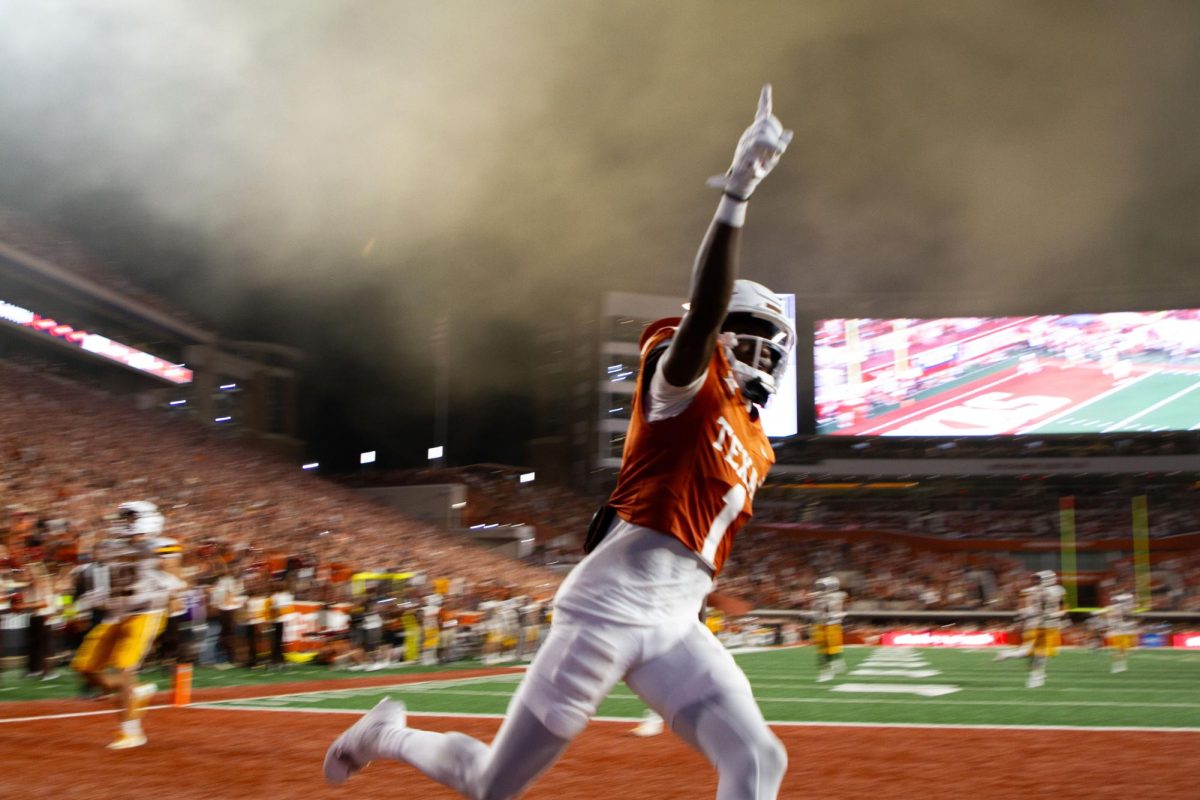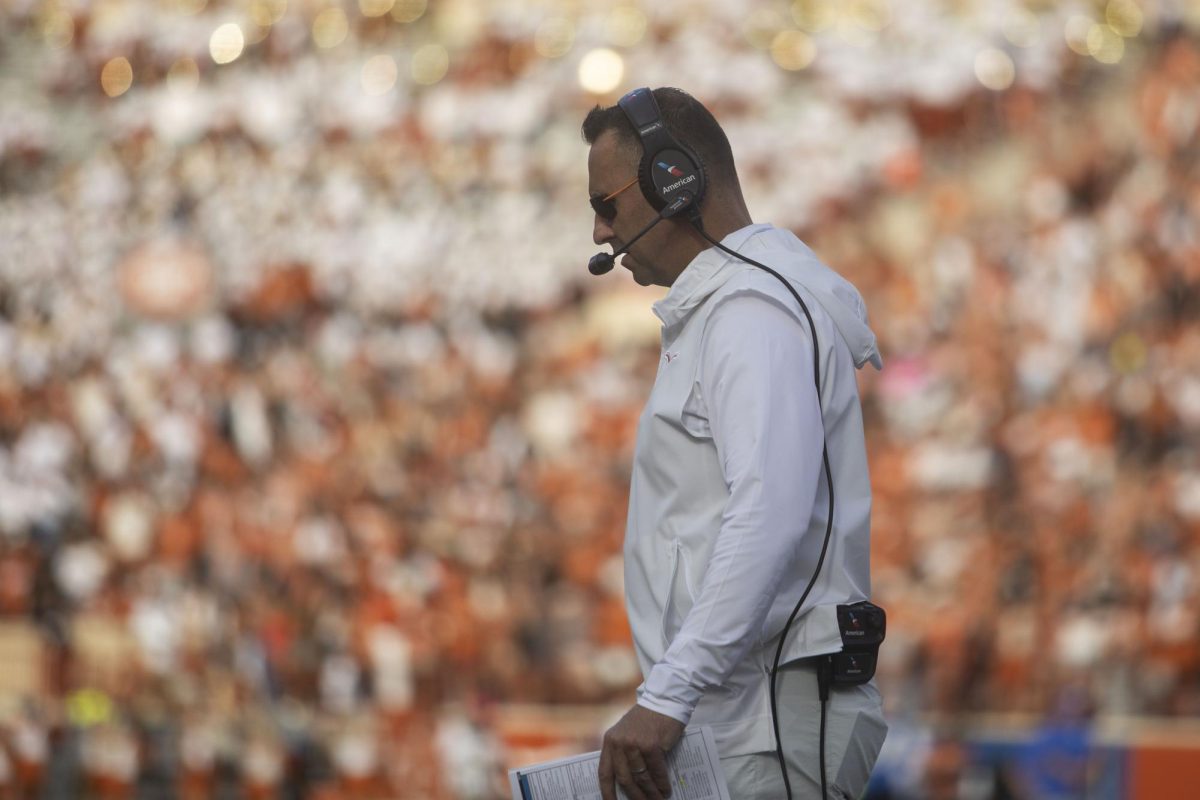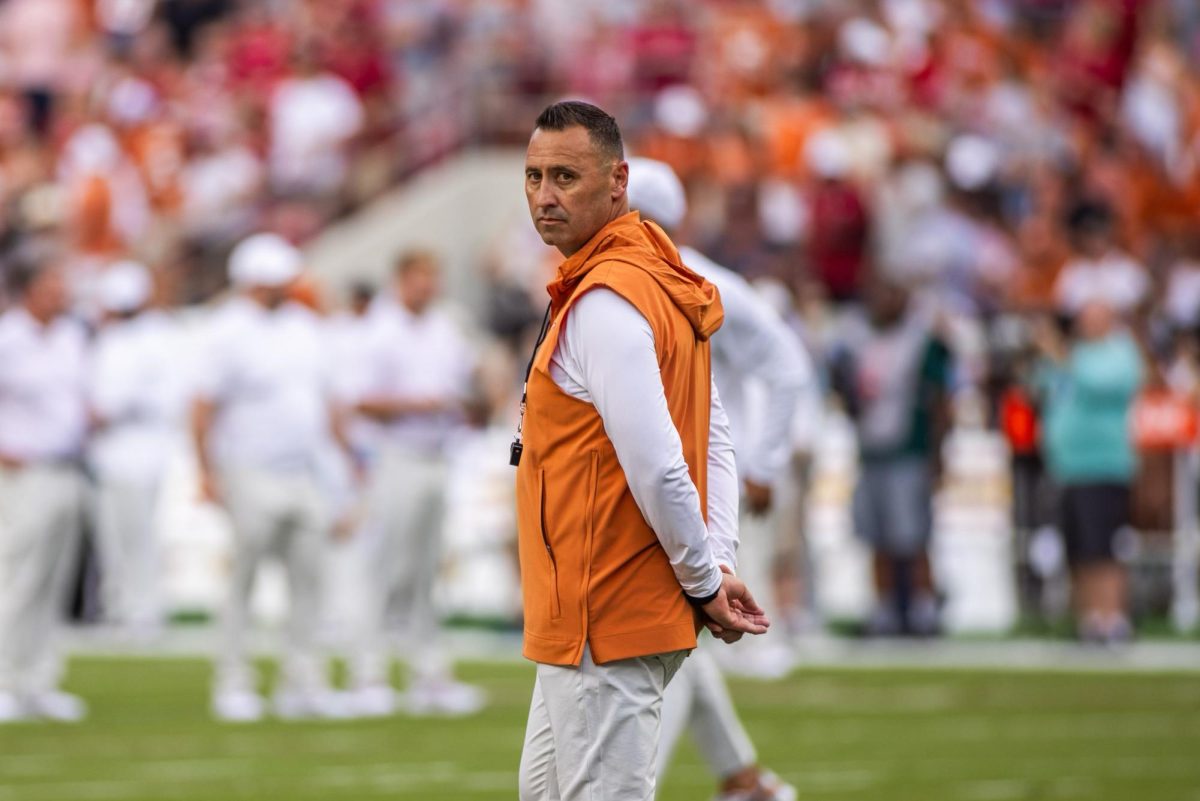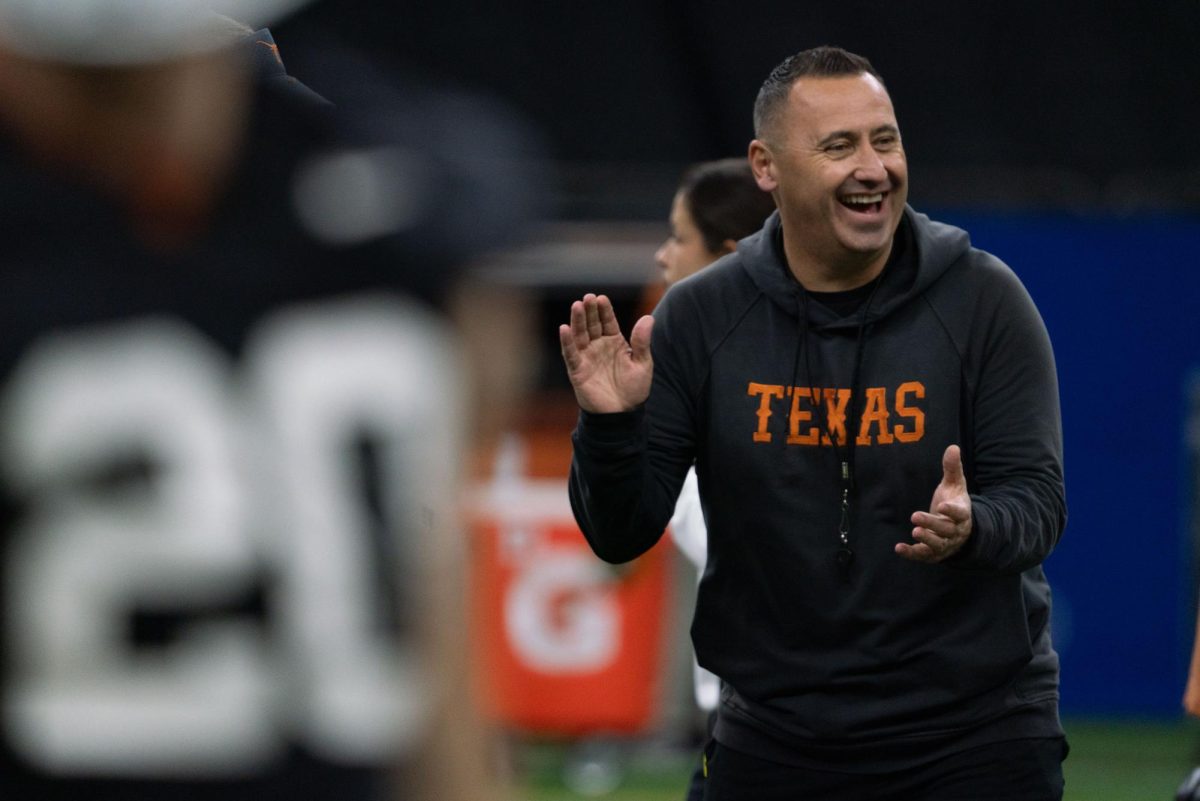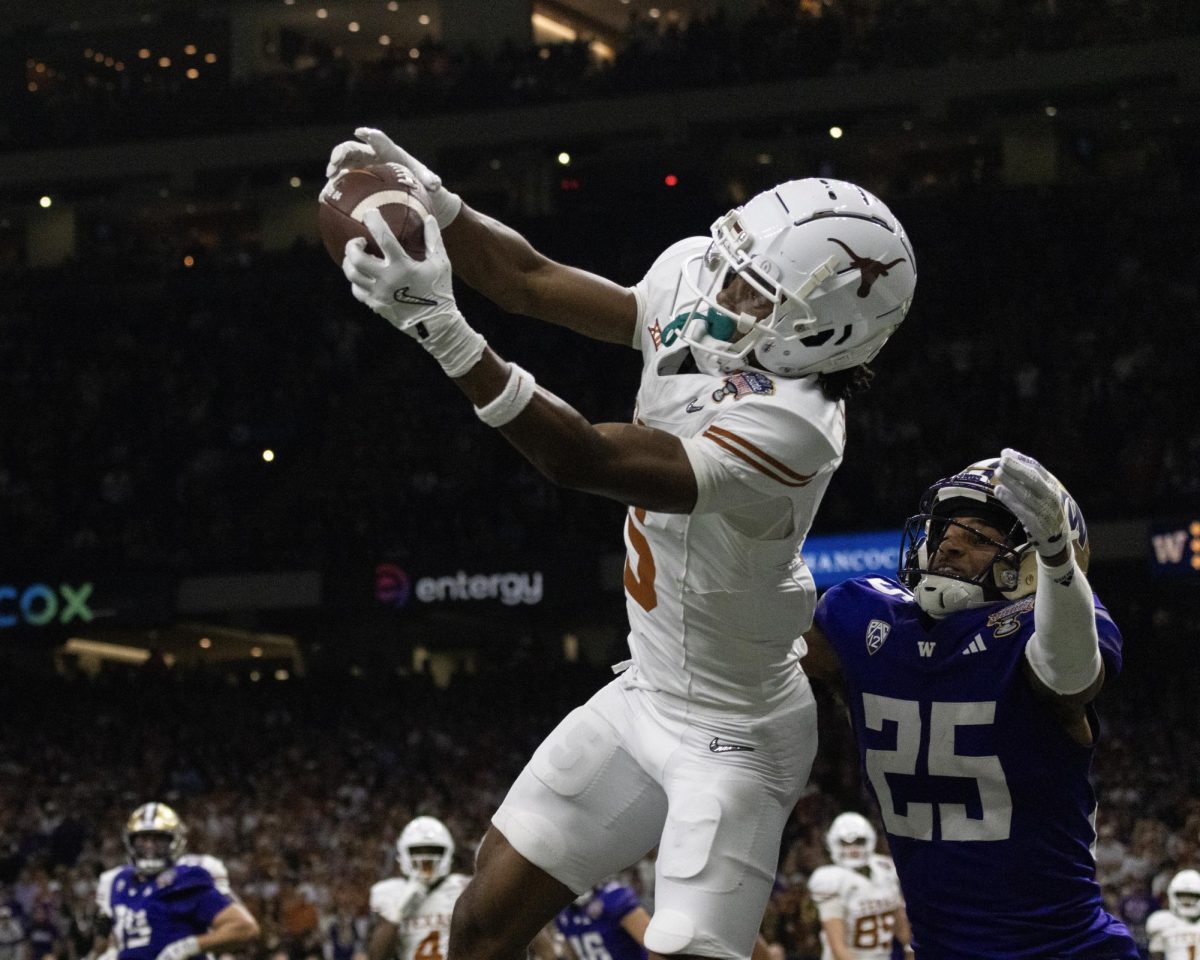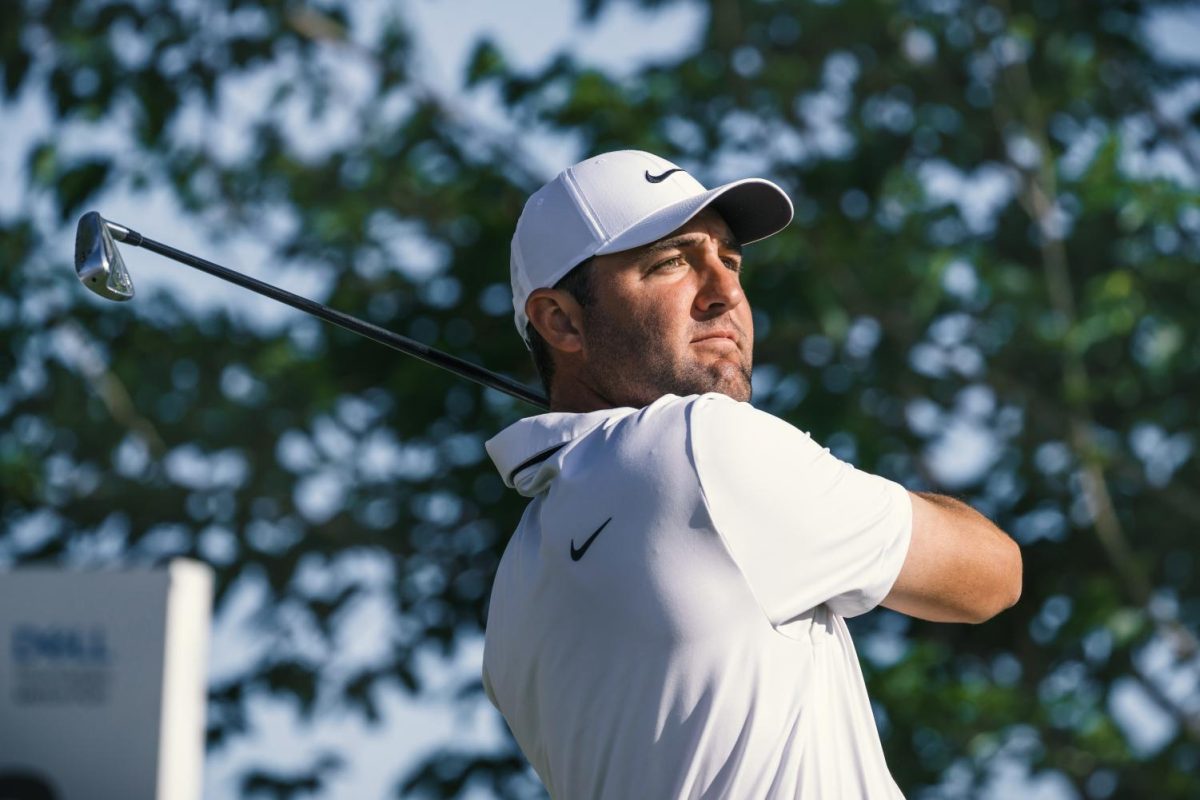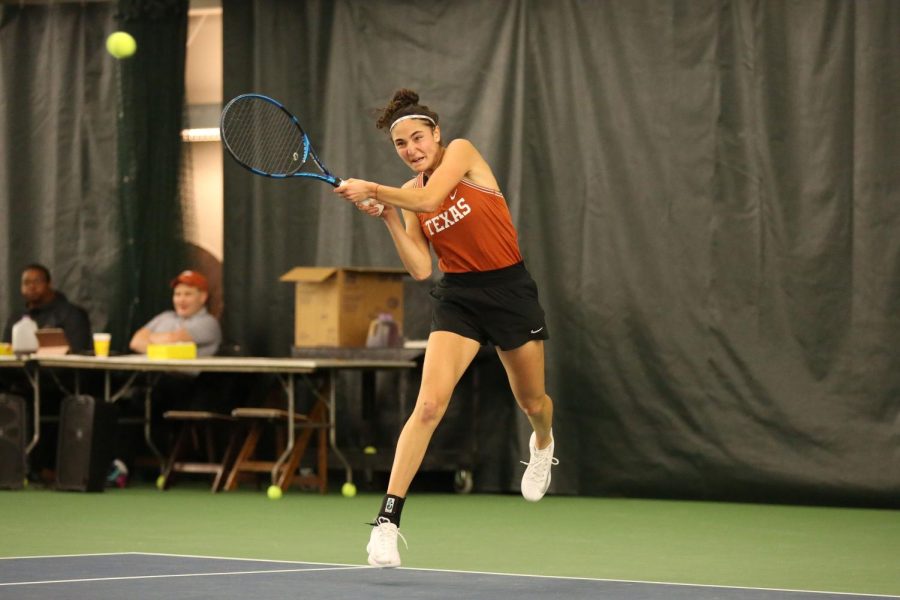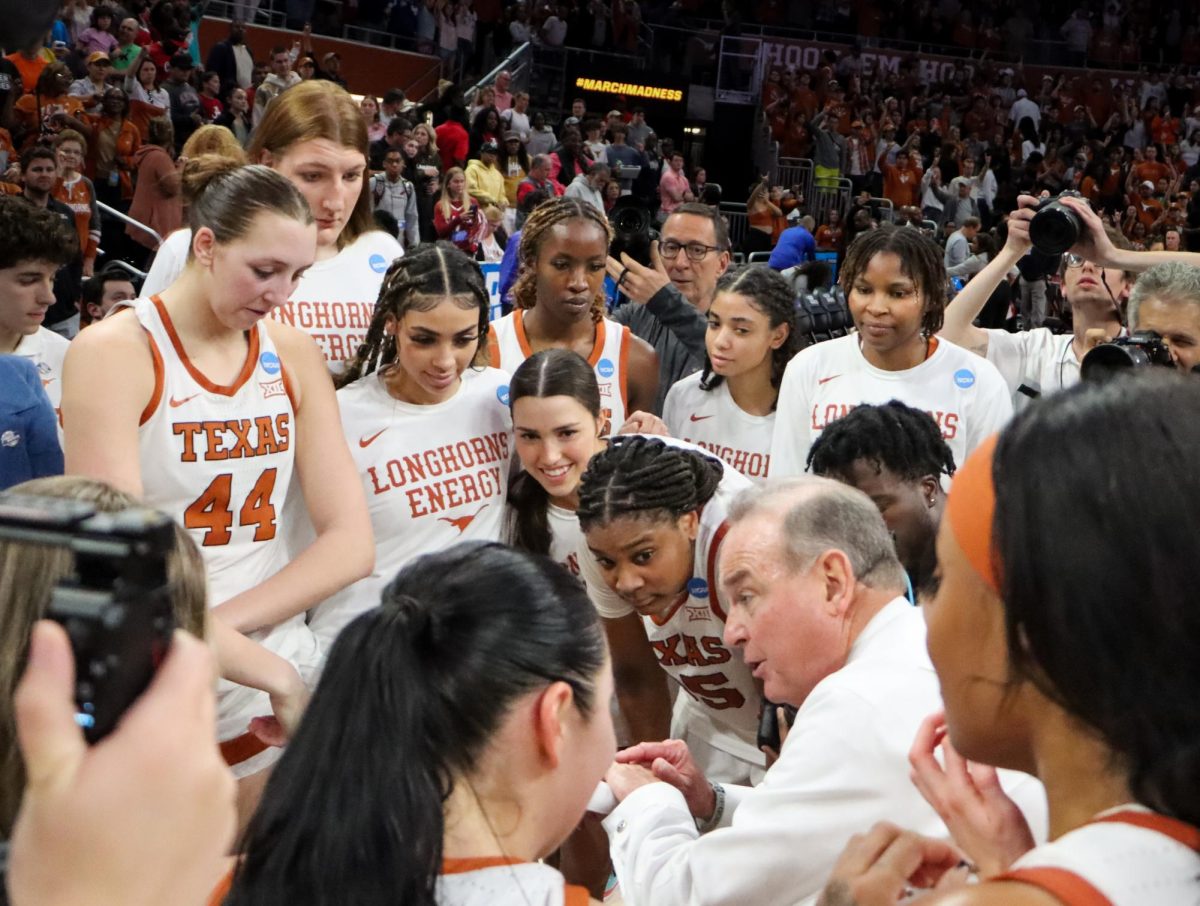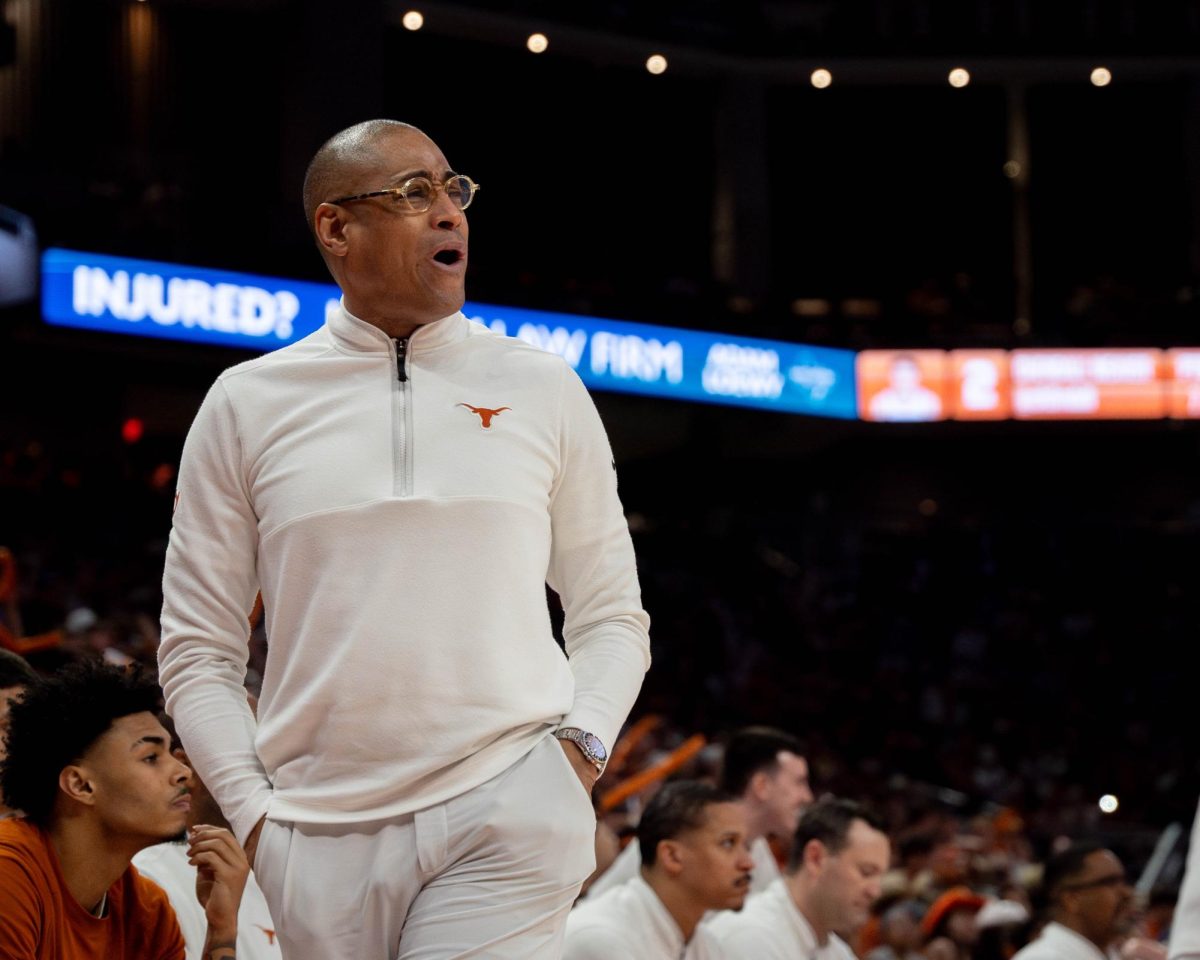Julius Whittier made an impromptu visit to Texas football practice Wednesday afternoon. If the players didn’t know who the man was as he walked onto the field in blue jeans and a black sweater, they certainly knew who he was by the end of the day.
Per the request of head coach Mack Brown, Whittier addressed the mass of kneeling players after practice. He spoke in the subjects such as hitting the books, holding the goal of a college degree to utmost esteem and finding something they love to study. The players might have thought they were being lectured by an old college professor if not for the introduction given by Bill Little, the longtime overseer of Texas Media Relations.
“We have a very special guest for you guys today,” he said. “This is Julius Whittier, and he was the first African-American to ever letter in football here. This is history.”
When Whittier first came to play football on the 40 Acres from his hometown of San Antonio in 1969, he did so against the advice of his close friends and family.
“Everybody told me not to come play football here,” he said. “They told me that they were racists and they had the Ku Klux Klan and all that. But everything I was told about the University of Texas wasn’t true.”
Forty years ago, freshmen weren’t eligible to play, so Whittier had to watch his older teammates defeat Arkansas for the 1969 national championship game. In 1970, Texas was once again a national champion. This time, Whittier was able to play. As an offensive guard at a time when Texas, under legendary head coach Darrell Royal, ran the famed “three yards and a cloud of dust” wishbone offense, Whittier paved the way for those running behind him.
One of the first to recognize Whittier as he entered the field through the south end zone was longtime fan and friend of Royal, Louis Murillo. He is the man who says Bobby Layne, the star quarterback of the 1944-47 Texas teams, is the best he’s ever seen play, so it would be safe to say that Murillo knows a little something about his Longhorns.
“I’ll tell you what,” Murillo said. “There have been a lot of guys to come through this program since I’ve been here, but none of them played like Julius Whittier. He was so strong and so quick, and I haven’t seen an offensive lineman with that combination of skills since he left.”
But what Whittier will always be remembered and embraced for was what he did to get onto the field, not what he did while on it. Despite being the first black letterman in the team’s history and one of roughly 100 black students at Texas at the time, Whittier said he didn’t face any true racial hostility. As for the effect that he had on the future of the program, he doesn’t feel that he did anything that anybody else couldn’t have done, given the opportunity.
“I’m not a pioneer,” Whittier said. “I wasn’t a hero. I wasn’t being put in a capsule and going out to the moon. I just wanted to play football and Texas wanted me to play for them.”
Sure, the Texas coaches wanted Whittier to play for them; his talent and intangibles were obvious. But not everybody at the University felt the same way. Though integration had been mandated, there were still many who thought that the football field should be a place without color.
“Most whites at UT were not for integration,” Whittier said. “I have to thank Coach Royal for making it possible that I played here. He stuck his neck out for me and he believed that UT should be an opportunity for people of all colors, despite what everybody around him was saying otherwise.”
By the time Whittier graduated from law school and went on to pursue his career as a district attorney, the cultural makeup of the football program had begun to change. Whittier was instrumental in the recruitment of Roosevelt Leaks, who went on to star as running back. Leaks’ success led to the arrival of Earl Campbell, who would win the Heisman Trophy in 1977. Last year, 21 of Texas’ 25 football recruits were African-American. Five years ago, a black quarterback led Texas to the national championship.
Whittier, who currently resides in Dallas, is in town for today’s Arthur Miller Dialogue, a panel discussion on sports, media and race at the LBJ Auditorium.
“There’s going to be a lot of people hoorah-ing the idea blacks should have the opportunities to play in front of thousands of people,” he said. “But I would like to talk about the dangerous head injuries that football is generating today. I talked to a lot of people about that at [Wednesday’s] practice.”
The panel discussion will offer a variety of topics — just the way Whittier likes it. Topics of his conversations at practice ranged from the aforementioned head injuries to the great number of school libraries available to students. He talked about LeBron James with junior kicker Justin Tucker and made sure to ask freshman quarterback Case McCoy how his brother, Colt, was doing with the Cleveland Browns. He greeted a long line of players and coaches after his brief talk with the team. He spent some time with defensive ends coach Oscar Giles, who thanked him for his contributions to the program. Freshman receiver Mike Davis and he spoke not of football but of home, as both hail from the Dallas area.
It was getting dark and all the players and coaches had walked back up to their locker rooms and offices at the Moncrief-Neuhaus athletics center. Practice was over, but Whittier still had one more person to talk to. As he walked to the parking lot, he saw a larger-than-life picture of a smiling Darrell Royal on the side of a Texas equipment truck. Displaying the athleticism that earned him a football scholarship many years ago, Whittier jumped up and gave the picture a tap and let out a big, “What’s up, coach!”
Smiling, he turned away from the truck.
“Man, coach was the best,” he said. “I owe everything to him.”
Royal had coached a lot of football players in his time, but he’ll always have a special place in his heart for Whittier.
“He was an outstanding player and an outstanding person,” Royal said. “I wish I had had about six Julius Whittiers.”



